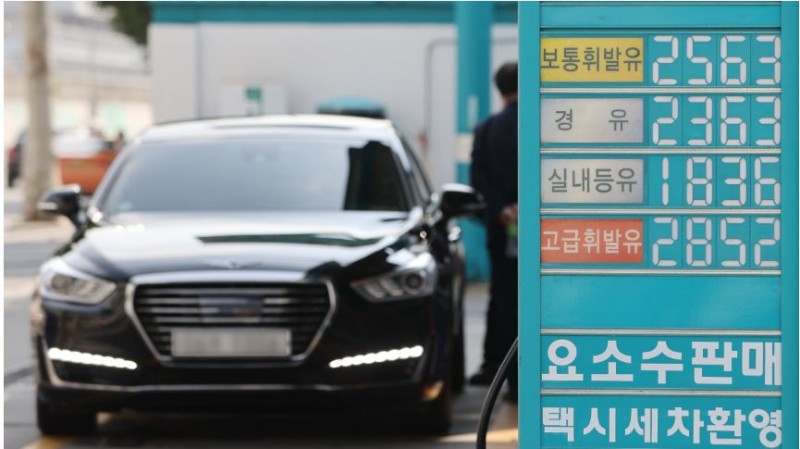
Seoul: South Korea decreased fuel taxes temporarily on Friday in an effort to mitigate the impact of rising oil costs on consumer inflation and people's lives. Consumer inflation in South Korea is on the rise. Due to high prices of agriculture and oil goods, consumer prices jumped 2.5 percent year over year in September, making it the sixth month in a row that they have risen more than 2 percent. According to reports, government officials claimed the 20 percent tax reduction on gasoline, diesel, and liquefied petroleum gas (LPG) will last for six months, until the end of April next year.
The fuel tax on gasoline will be reduced to 656 won (USD 0.55) per litre from 820 won, while the diesel tax will be reduced to 466 won from 582 won. Taxes contribute for almost 40 percent of the cost of gasoline in the United States. Local petrol stations will likely take a few weeks to reflect the decreased taxes in their prices, according to industry observers. Local gas stations are infamous for boosting prices quickly after an international oil price increase and taking a long time to lower prices when crude costs less.
As international oil prices skyrocketed to a near three-year high amid the global economic recovery from the epidemic, the government and the ruling party decided to decrease fuel taxes in late October. According to data compiled by the state-run Korea National Oil Corp, the average gas price increased to 1,810 won per litre on Thursday, up 116 won from October 13.
North Korea calls for increased efforts to meet the 5-year plan's economic objectives
South Korea-US negotiations over end-of-war declaration in final stages
Moon Jae-in assures complete return to normalcy before presidency ends